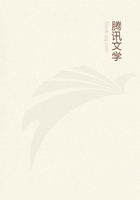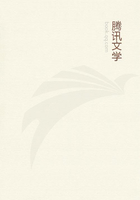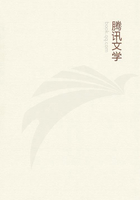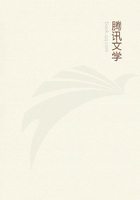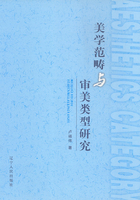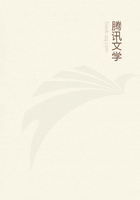Had Hampden been a Papist he would have paid ship-money. He wrote also in "The Owl," a brilliant little magazine edited by his friend Laurence Oliphant; a "Society Journal," conducted by a set of clever well-to-do young bachelors living in London, addressed like the "Pall Mall Gazette," in "Pendennis," "to the higher circles of society, written by gentlemen for gentlemen." When the expenses of production were paid, the balance was spent on a whitebait dinner at Greenwich, and on offerings of flowers and jewellery to the lady guests invited. It came to an end, leaving no successor equally brilliant, high- toned, wholesome; its collected numbers figure sometimes at a formidable price in sales and catalogues. The first two volumes of his "Crimea" had appeared in 1863. They were awaited with eager expectation. An elaborate history of the war had been written by a Baron de Bazancourt, condemned as unfair and unreliable by English statesmen, and severely handled in our reviews. So the wish was felt everywhere for some record less ephemeral, which should render the tale historically, and counteract Bazancourt's misstatements. "I hear," wrote the Duke of Newcastle, "that Kinglake has undertaken the task. He has a noble opportunity of producing a text-book for future history, but to accomplish this it must be STOICALLY impartial."The beauty of their style, the merciless portraiture of the Second Empire, the unparalleled diorama of the Alma fight, combined to gain for these first four-and-twenty chapters an immediate vogue as emphatic and as widely spread as that which saluted the opening of Macaulay's "History." None of the later volumes, though highly prized as battle narratives, quite came up to these. The political and military conclusions drawn provoked no small bitterness; his cousin, Mrs. Serjeant Kinglake, used to say that she met sometimes with almost affronting coldness in society at the time, under the impression that she was A. W. Kinglake's wife. Russians were, perhaps unfairly, dissatisfied. Todleben, who knew and loved Kinglake well, pronounced the book a charming romance, not a history of the war. Individuals were aggrieved by its notice ofthemselves or of theirregiments; statesmen chafed under the scientific analysis of their characters, or at the publication of official letters which they had intended but not required to be looked upon as confidential, and which the recipients had in all innocence communicated to the historian. Palmerstonians, accepting with their chief the Man of December, were furious at the exposure of his basenesses. Lucas in "The Times" pronounced the work perverse and mischievous; the "Westminster Review" branded it as reactionary. "The Quarterly," in an article ascribed to A. H. Layard, condemned its style as laboured and artificial; as palling from the sustained pomp and glitter of the language; as wearisome from the constant strain after minute dissection; declaring it further to be "in every sense of the word a mischievous book." "Blackwood," less unfriendly, surrendered itself to the beauty of the writing; "satire so studied, so polished, so remorseless, and withal so diabolically entertaining, that we know not where in modern literature to seek such another philippic."Reeve, editor of the "Edinburgh," wished Lord Clarendon to attack the book; he refused, but offered help, and the resulting article was due to the collaboration of the pair. It caused a prolonged coolness between Reeve and Kinglake, who at last ended the quarrel by a characteristic letter: "I observed yesterday that my malice, founded perhaps upon a couple of words, and now of three years' duration, had not engendered corresponding anger in you; and if my impression was a right one, I trust we may meet for the future on our old terms."On the other hand, the "Saturday Review," then at the height of its repute and influence, vindicated in a powerful article Kinglake's truth and fairness; and a pamphlet by Hayward, called "Mr. Kinglake and the Quarterlies," amused society by its furious onslaught upon the hostile periodicals, laid bare their animus, and exposed their misstatements. "If you rise in this tone," he began, in words of Lord Ellenborough when Attorney-General, "I can speak as loudly and emphatically: I shall prosecute the case with all the liberality of a gentleman, but no tone or manner shall put me down." And the dissentient voices were drowned in the general chorus of admiration. German eulogy was extravagant;French Republicanism was overjoyed; Englishmen, at home and abroad, read eagerly for the first time in close and vivid sequence events which, when spread over thirty months of daily newspapers, few had the patience to follow, none the qualifications to condense. Macaulay tells us that soon after the appearance of his own first volumes, a Mr. Crump from America offered him five hundred dollars if he would introduce the name of Crump into his history. An English gentleman and lady, from one of our most distant colonies, wrote to Kinglake a jointly signed pathetic letter, intreating him to cite in his pages the name of their only son, who had fallen in the Crimea. He at once consented, and asked for particulars - manner, time, place - of the young man's death. The parents replied that they need not trouble him with details; these should be left to the historian's kind inventiveness: whatever he might please to say in embellishment of their young hero's end they would gratefully accept.
同类推荐
The Love Affairs Of A Bibliomaniac
本书为公版书,为不受著作权法限制的作家、艺术家及其它人士发布的作品,供广大读者阅读交流。汇聚授权电子版权。
热门推荐
Betrayed (Book #3 in the Vampire Journals)
TURNED is a book to rival TWILIGHT and VAMPIRE DIARIES, and one that will have you wanting to keep reading until the very last page! If you are into adventure, love and vampires this book is the one for you!美学范畴与审美类型研究
本书稿为沈阳工业大学卢福伟研究员多年在美学范畴及审美类型研究方面的论文的合集。其中包括美学范畴的概论、各种美学范畴及审美类型的具体研究以及中西方美学范畴的对比研究。本书稿论述精辟、观点独到,有一定的可读性、创新性,具有一定的出版价值。学会选择学会放弃全集
本书通过对工作、爱情、婚姻、财富、健康、处世、事业等层面的精辟分析,多角度、多方位阐明了人生关键时刻所面临的种种挑战与抉择,并告诉人们如何在风云变幻的人生舞台上保持清醒的头脑,借助选择和放弃的伟大力量,掌舵自己命运的的航向,不断把自己的生命乐章推向高潮。

